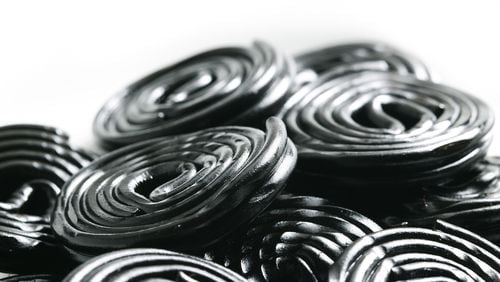Black licorice looks innocent enough.
But eat enough of those sticks or candies, and you could suffer the consequences.
We’re not talking about weight gain or tooth decay. We’re talking bonafide, serious health issues like arrhythmia, reports the FDA.
Blame it on one ingredient. Glycyrrhizin, the sweetening compound derived from licorice root, can cause your potassium levels to decrease, sometimes resulting in abnormal heart rhythms, high blood pressure, edema, even congestive heart failure.
According to a warning released on the FDA’s website, if you’re 40 and older and have a history of heart disease and/or high blood pressure, eating two ounces of black licorice a day for at least two weeks “could land you in the hospital.”
Black licorice can also interact with some medications and dietary supplements.
Phew. Some good news, at least. FDA’s Linda Katz, M.D says potassium levels are usually restored when consumption of the old school favorite stops, with no lasting health problems.
Fans of candy brands like Twizzlers, Good and Plenty and Haribo can calm down. Most of the stuff you see on the shelves at places like Publix and CVS are only “flavored with licorice,” reports the National Institutes of Health (NIH).
If you’ve experienced any problems after eating actual licorice, often sold in bulk in traditional candy stores, the FDA asks you to write a local consumer complaint coordinator.






